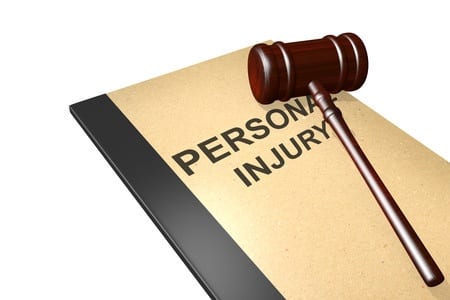 In the state of Florida, there are a variety of laws and policies considerably in favor of, and against both insurers and payees when it comes to Personal Injury Protection (PIP), legal liability, and taking into account that Florida is technically a “no-fault” state when it comes to such situations or incidents. Needless to say, pursuing a personal injury case is by no means a simple task.
In the state of Florida, there are a variety of laws and policies considerably in favor of, and against both insurers and payees when it comes to Personal Injury Protection (PIP), legal liability, and taking into account that Florida is technically a “no-fault” state when it comes to such situations or incidents. Needless to say, pursuing a personal injury case is by no means a simple task.
In particular, the Florida Statute 627.736(10) identifies and reflects the necessity and total responsibility of individuals involved in accidents or personal injury cases to first create and administer a demand-letter to the insurance company, within 30 days. Likewise, there are counter-clockwise laws that equally protect the payee, or individual involved in the accident, such as statute of limitations, the ability to submit statements, remarks, or correspondences to the courts in the case of a lawsuit, and of course, lastly, the ability to in-fact file a lawsuit in the first place against an insurance company. Most specifically, it’s demonstrated through Florida laws and policies that both the payee or defendant, along with insurance companies must pay careful attention to, and ensure that all steps are adequately taken throughout the attempted retribution process, before first bringing said case or filing to the attention of the or a courts system.
Here is some standing advice for insurance companies and litigation experts or attorneys, dependent upon how such an incident might ‘pan-out’, what steps are necessary to take, and how to be the most responsible in ensuring compliance with Florida’s laws, policies, and statues in such a given personal injury incident.
Firstly, always pay special attention to correspondences, the year, and date. That is, in lieu and observance of statutory limitations, purpose of PIP demand-letter, and so forth.
Understand that as an insurance company, nor litigation expert or attorney, that in most cases, you are by no means bound to fulfill or respond to demand-requests in which you do not wish to do so, feel are justified, or are otherwise inaccurate and not valid, or reflective of certain medical treatment or claims—for example, Florida has a set scale and demand process for filing and pursuing repayment for certain medical costs, specifically through a Medicare paying scale.
In the meantime, while you contemplate your situation, requests, and sift through correspondences ensure you angle yourself as advantageously as possible, ensuring proper bookkeeping of billing, as well as any other costs accrued in relation to the claim–and retribution efforts.
Ensure you thoroughly read, review, and double-check any and all correspondences or responses upon creation or receipt, as such terms, expressions, demands, and otherwise personal injury-related liaison efforts between you and the insured, or the defendant, as these correspondences and documentation could just as easily be flipped, and used against you.
Last but not least, while some situational variables are acceptable or excusable, pay close attention and ensure you meet any and every guideline, law, or policy and statue to ensure compliance, in order to otherwise create the most practical, profitable, and meaningful attempts of retribution, case-filing, or a lawsuit.
Staying in close contact with both the individual(s) or those you represent, as well as ensuring you stay on top of and document any and every interaction or correspondence is of the utmost importance to successfully claiming, filing, receiving retribution for, or taking an individual or entity to court in the form of a lawsuit.
Image credit: hafakot
